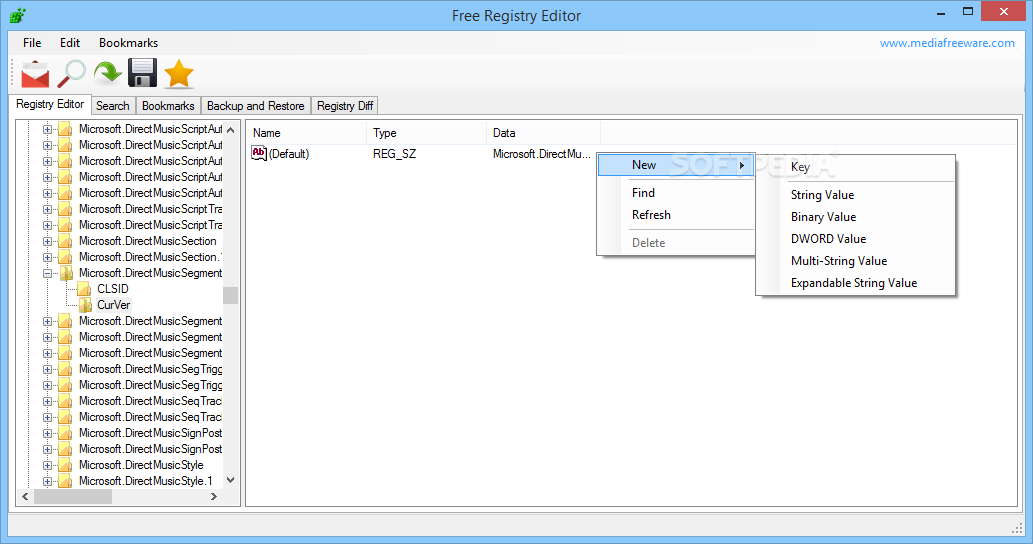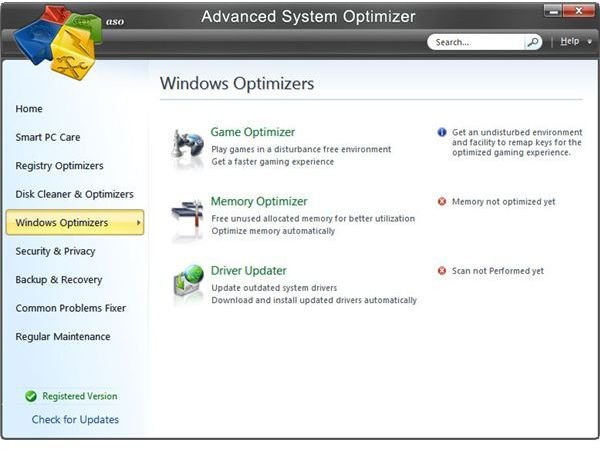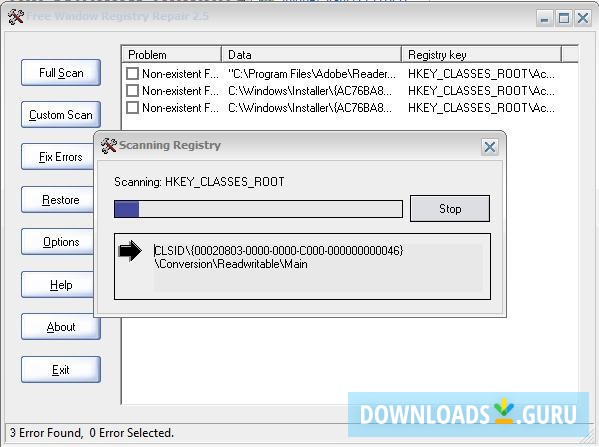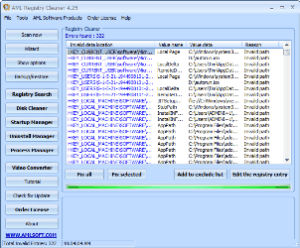

- #Best freeware registry repair windows 7 64 bit drivers#
- #Best freeware registry repair windows 7 64 bit Pc#
- #Best freeware registry repair windows 7 64 bit download#
- #Best freeware registry repair windows 7 64 bit free#
#Best freeware registry repair windows 7 64 bit Pc#
Both of those catches were accurate, and gave us a sense that the program’s removal suggestions were accurate.Įxamine the errors you see and look for familiar programs before moving forward.Īfter a couple of days, if your PC doesn’t do anything weird, such as showing error messages on boot or when trying to launch a program, try another scan, this time allowing the registry cleaner to scan more aggressively.Īlways examine entries marked with “Caution,” “Extreme Caution,” or some other indicator of risk very carefully.
#Best freeware registry repair windows 7 64 bit drivers#
For example, we saw almost 100 registry entries left over from a package of Dell drivers that had been uninstalled months ago, and one registry cleaner spotted invalid paths to dozens of entries for MP3 files that were moved to a new location. Choosing which of the errors to remove or repair can give you a migraine. Whatever you do, never choose an “auto clean” option, such as the one in RegSeeker. For instance, Registry First Aid found 2,161 problems on the work system, of which about 1,900 were deemed safe to alter. (You can scan with more-aggressive settings later on.) Even using a cautious approach you might still see 1,000 or even 2,000 “safe” entries that need cleaning. If you’re given the option, set the registry cleaner to remove errors only at the safest and least-intrusive level. After the scan, the program will let you remove-or in some cases, repair-the registry errors. Right-click any icons in your taskbar that are for programs running in the background and quit them before you begin.ĥ. It’s also smart to disable/unload any programs running in your system tray because open apps are constantly making registry changes, and you want the registry cleaner to do its work with no interference.

When you begin scanning, make sure you don’t have any other applications running. Stay alert and read whatever the cleaning tool has to say, especially when it’s about to delete files.Ĥ. That isn’t the case with registry cleaners. Pay attention. In most programs that guide you with wizards it’s no big deal if you don’t pay attention and merely keep clicking the Next button. If you’re on Windows 7/8/10 you can just create a System Restore Point to accomplish the same thing.ģ. If you’re using an older version of Windows such as XP, you can use ERUNT (the Emergency Recovery Utility NT). This is a bit redundant, since the registry cleaner will back up any changes it makes, but an extra level of security never hurts, and will help greatly if something goes awry. Back up your registry. Make sure to back up your registry before you open any registry cleaner.
#Best freeware registry repair windows 7 64 bit download#
(Read a review of Acronis True Image 2015 and download the demo.)Īlways create a System Restore Point before you start mucking around with the registry.Ģ. After each test, we restored the systems to their original state of disarray with Acronis TrueImage. We also tried to determine whether the system seemed friskier post-cleanse. We tried each tool on three computers: a messy work PC using Windows XP SP3, on a pristine Fujitsu Lifebook T-Series laptop running Vista, and on an old ThinkPad laptop.* We ran the registry scan and repair module of each application, rebooted the system, and watched for problems that would indicate that the “cleaning” process broke something.

#Best freeware registry repair windows 7 64 bit free#
We examined two free products (Advanced Windows Care and RegSeeker) and three commercial ones (jv16 PowerTools, Registry First Aid, and RegSupreme Pro). To find out which registry cleaner catches the most errors, is the safest and easiest to use, and (just as important) creates the fewest hassles, we tested five popular registry cleaners, many of which came recommended by PCWorld readers. It also depends on the effectiveness of the registry cleaner you choose, and there are a lot to choose from. That’s right, a big, fat perhaps-because everything depends on the condition of your registry.

The answer is, emphatically and unequivocally, maybe. The big question we’re asking in this piece is whether a registry cleaner will indeed speed up your PC, making it boot more quickly and run faster. Far too often, program updates and installers leave unneeded pointers in the registry, so the registry becomes bloated with unnecessary entries, slowing down your system. Compounding this problem is the fact that applications are usually too inept to uninstall all of the registry entries they create.


 0 kommentar(er)
0 kommentar(er)
